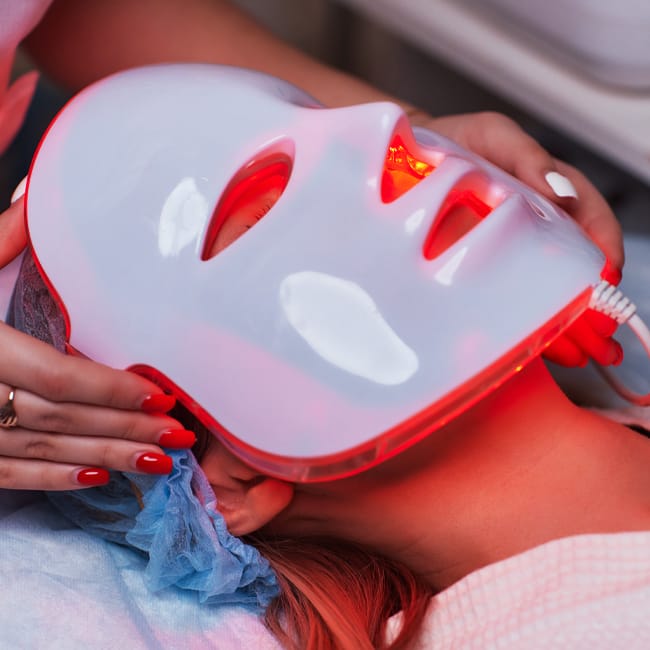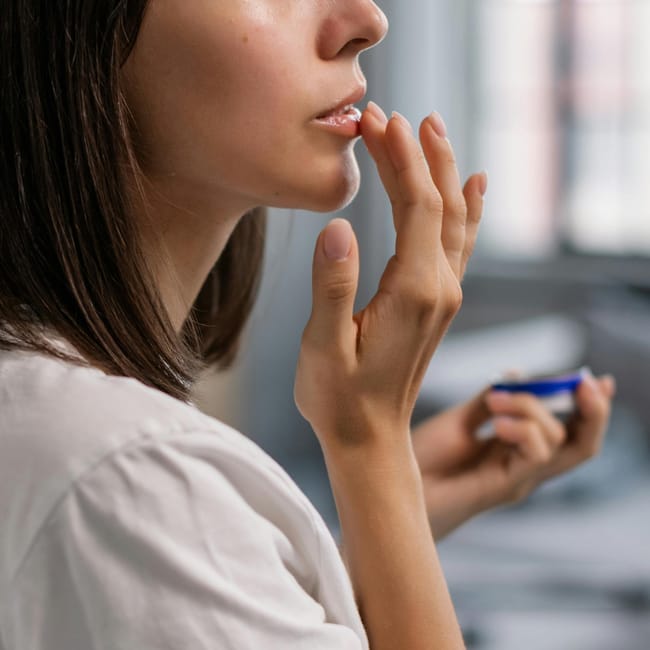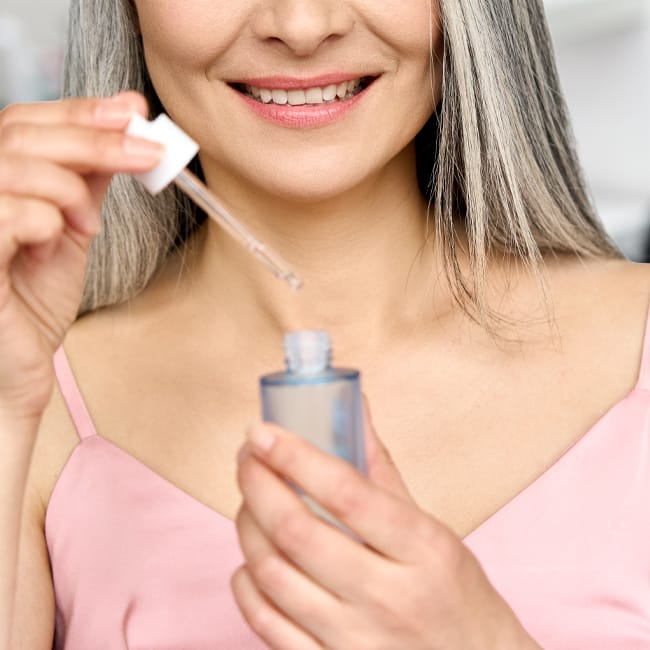Aside from retinol, vitamin C is one of the most powerful anti-aging skincare serums to implement into your beauty routine for a smooth and wrinkle-free complexion for years to come. However, whether you have sensitive skin or not, too much of a good thing can have an adverse effect on your body, and the same idea applies to vitamin C.
We spoke with board-certified dermatologist, Dr. Marisa Garshick to determine the lasting effects of overusing vitamin C, and exactly what frequency you should be applying it to see the best anti-aging results.


Dryness & Irritation
It's first important to determine what would be classified as ‘too much’ vitamin C in order to know how much or often you should be using it on your complexion. “Too much vitamin C serum can refer to the frequency of use, as often when first introducing a vitamin C, it can be best to start just a few times per week to minimize the potential for irritation,” notes Garshick.
As with retinol, vitamin C is fairly potent on the skin, and using it regularly when first integrating it into your skincare routine can lead to redness, dryness, and increased sensitivity that can then cause you to look older than you are. “Because vitamin C is acidic, too much vitamin C can impact the skin’s pH as well as the skin barrier,” adds Garshick.
Outside of the frequency of which you’re using vitamin C, the concentration of the formula can also impact whether your skin experiences any adverse effects. “For people with sensitive skin or those just starting a vitamin C, it can be helpful to start with products containing a lower concentration,” suggests Garshick. “The type of vitamin C can also be important for certain people as L-ascorbic acid may be considered too irritating for certain individuals.”
If this is the case for your skin and you’ve experienced issues of irritation, redness, or dryness from the use of vitamin C serum, Garshick recommends opting for a solution formulated with tetrahexyldecyl or magnesium ascorbyl phosphate instead.

Vitamin C can be an excellent addition to your skincare routine, particularly in the function of protecting the skin’s barrier and preventing free radical damage from developing. This serum is a powerful topical antioxidant with known benefits in the way of brightening and evening the skin tone, making it a useful anti-aging tool when eased into your routine.
“It can also work to brighten the skin, improve discoloration and boost collagen production,” adds Garshick. With this, if you notice your skin has been responding poorly to vitamin C, cutting back to using it several times a week or lowering the concentration of your dose can make a significant difference in your appearance and make it easier to ease into usage.
Monitoring your skin’s reaction to new products will always be essential in creating a routine that works for you, but particularly if your skin is sensitive or aging it may be worth slowly adding in powerful serums such as retinol or vitamin C to ensure they’re making your complexion better and not having the opposite effect.
Starting out with usage several times per week before slowly increase to daily will allow your skin’s barrier to adjust to vitamin C, and as always, if you are having a bad reaction to a new product it will likely be better for your skin in the long term to stop use immediately and consult with a dermatologist before moving forward.

























